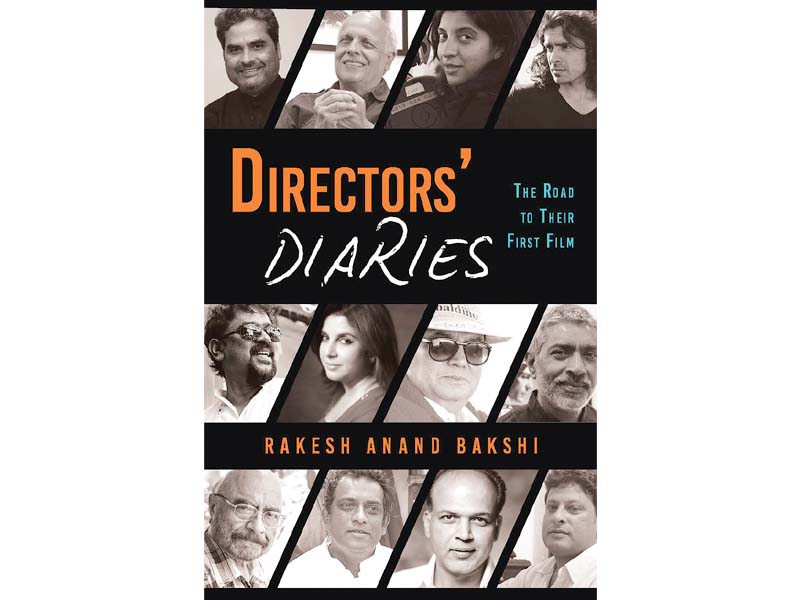
Ironically, Rakesh’s own journey is not very different from the stalwarts that he documents in his book. Son of the late lyricist Anand Bakshi, Rakesh always wanted to be an actor and went to the New York Film Academy to study acting and filmmaking.
However, his father deemed acting as an insecure profession and Rakesh ended up making documentary films. He does plan on working on feature films as well but for now, he is getting all the attention because of Directors Diaries.
“In Bollywood, there are no books that have authentic information on how the greats of Bollywood, most of them belonging to non-film backgrounds managed to make their first film,” Rakesh tells The Express Tribune.
Read: Filmmaker extraordinaire Remembering the man who defined Lollywood
To bridge this missing link, Rakesh wrote Directors’ Diaries, the purpose of which was twofold: one, to find inspiration for himself as he plans on making films, and two, to create a guidance manual for millions of aspiring filmmakers in India, Pakistan and around the world. But the process of book writing came with its challenges.
“Most of the directors would not respond to my emails or phone messages. So what? I never took it personally and respected their time,” but it was his curiosity that kept him afloat despite so many disappointments.
“My angst demanded to learn what these filmmakers did since childhood that I did not do, what environment they grew up in which I did not have, and what books and cinemas they experienced that I had not.”
Other directors included in the book are Mahesh Bhatt, Zoya Akhtar, Govind Nihalani, Anurag Basu, Tigmanshu Dhulia, Prakash Jha, Ashutosh Gowarikar and Santosh Shivan. It also reveals how Prakash Jha took up a job in a hotel kitchen to finance his studies at the Film and Television Institute of India, before he went on to produce films like Rajneeti and Satyagraha. Subhash Ghai’s early childhood was spent in the agony of fighting parents, which forced him to find respite in music and entertainment, eventually leading to filmmaking.
Read: The most stylish Khan has arrived
On a personal note, Rakesh feels a deep connection with Pakistan as his parents were residents of Rawalpindi but were forced to abandon their hometown during the 1947 partition.
“Receiving this opportunity to share my ideas with a Pakistani audience makes me feel that although my parents could never return to their place of birth, but I will,” concludes Rakesh.
Published in The Express Tribune, August 23rd, 2015.
Like Life & Style on Facebook, follow @ETLifeandStyle on Twitter for the latest in fashion, gossip and entertainment.

1722586547-0/Untitled-design-(73)1722586547-0-165x106.webp)


1732326457-0/prime-(1)1732326457-0-165x106.webp)
1732308855-0/17-Lede-(Image)1732308855-0-270x192.webp)











COMMENTS (1)
Comments are moderated and generally will be posted if they are on-topic and not abusive.
For more information, please see our Comments FAQ